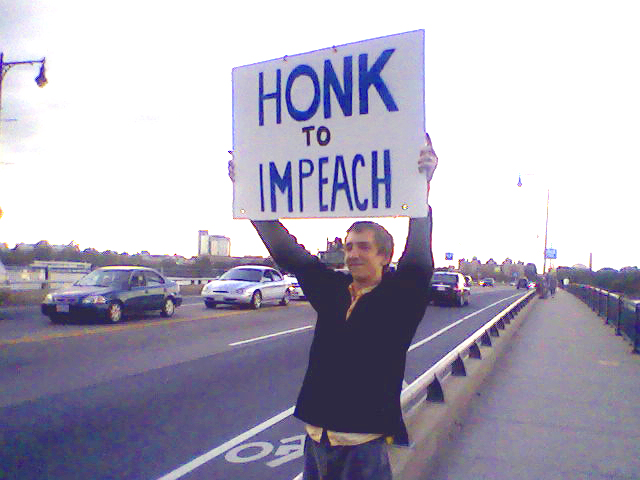On Friday, Nov. 15, the non-partisan club BergVotes hosted a roundtable discussion on impeachment. At the roundtable, Dr. Lanethea Mathews-Schultz, Department Chair and Professor of Political Science, and Dr. Lynda Yankaskas, Associate Professor of History, shared insights on the process of impeachment historically, politically and in the context of the current President of the United States.
The discussion was also attended by Dr. Jacqueline D. Antonovich, Assistant Professor of History, Dr. Ross Dardani, Assistant Professor of Political Science, and Dr. Jeremy Teissére, Associate Professor of Biology and Neuroscience, as well as a number of students.
Mathews-Schultz opened the discussion by explaining that there is no standard procedure for impeachment and that it is a political rather than a legal process.
Yankaskas elaborated on the actual meaning of impeachment, explaining, “You can impeach a president, but it’s hard to remove him from office; the senate has to vote in a two-thirds majority … If this president is convicted by two-thirds that would be unprecedented.”
The professors both explained that the political party landscape is fundamentally different than past impeachments, with Mathews-Schultz adding that there will be a significant fallout regardless of the outcome of Trump’s hearing.
One focus of the conversation was whether or not President Trump will actually be removed from office, with many of the professors expressing their opinions on the matter.
“Each senator has to weigh potential political fallout from their decision.”
Mathews-Schultz explained the influence of party loyalty and reelection on lawmakers’ decisions on any potential removal, saying, “Each senator has to weigh potential political fallout from their decision.”
The professors spoke about public opinion of the presidency, government and impeachment.
Yankaskis responded, “It’s not that we think it’s okay, it’s that we think everybody does it,” she explained, “It’s not that people should blindly trust government… [but] the assumption that all of government is evil is profoundly dangerous … I like having clean water, I like having paved roads … that’s all government, and I think the cynicism can be corrosive.”
Mathews-Schultz added that “trust in government is definitely at an all time low,” elaborating, “The problem is we seek a solution to a bad president with another president … we pin our hopes from improvement on yet another president.”
Towards the end of the discussion, students spoke about the way that politics, specifically the impeachment inquiry, are spoken about on Muhlenberg’s campus.
“I think the partisanship has transcended into the private lives of individuals … and it’s just not productive anymore”
Joey Goret ‘20 said, “I think the partisanship has transcended into the private lives of individuals … and it’s just not productive anymore … the political arena is so toxic right now … and I think it’s hurting everyone and undermining our democratic system.”
Simone Kaye ‘23 added that Muhlenberg students are “tuned into headlines, but it’s typically shallow information … it’s more of an emotional response than discourse.”
Mathews-Schultz explained that at Muhlenberg, “We’re working really hard to create an environment that’s less toxic … in a way that’s more productive.”
The professors in attendance encouraged students to continue having conversations about impeachment with their peers and to be a part of the governmental process where possible.
“Representatives are supposed to represent us; this is the moment where phone calls and marches and letters [matter],” urged Yankaskis.






















